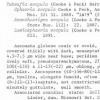
01-03-2026 08:55
 Michel Hairaud
Michel Hairaud
Bonjour , Je souhaiterais recevoir cet article :�

01-03-2026 15:31
 Csaba Németh
Csaba Németh
Hello!I found these apothecia on Homalothecium lue

01-03-2026 18:02
 Francois Guay
Francois Guay
I found this mystery Helotiales on an incubated le

01-03-2026 17:51
 Bruno Coué
Bruno Coué
Bonjour,sur vieilles crottes de sanglier en chambr

27-02-2026 17:51
 Michel Hairaud
Michel Hairaud
Bonjour, Quelqu'un peut il me donner un conseil p

01-03-2026 14:10
 Antonio Couceiro
Antonio Couceiro
Hola, me gustaria conocer opiniones sobre este tem

19-02-2026 17:49
Salvador Emilio JoseHola buenas tardes!! Necesito ayuda para la ident
 Dear Friends
Dear FriendsToday, during the review of other specimens from the Carpathians, I found Acanthostigma sp. sample (unfortunately, slightly immature). I think it can be Acanthostigma scopulum Peck.
I am never seen this species earlier, therefore I can not be sure.
Do you familiar with this species?
Grateful before,
Alex
I don't think this is Acanthostigma. To me, your find resembles more to a Tubeufia.
Best wishes,
Gernot

Thank you.
I contacted about this species with Andrew Miller. Till now we have not come for a unique solution of this question. Our first thought was that it is Tubeufia aurantiella, but the degree of development of setaes favors Acanthostigma.
Alex

In various sources information about Acanthostigma (=Tubeufia) scopulum: the size and presence of septa in setaes, as well as pseudothecia colour, size of asci and ascospores for this species are different.
In Kodsueb, R. et al, Mycologia, 2004, 96(3): 667
Acanthostigma scopulum (Cooke & Peck) Peck, Bull. New York State Mus. 1:22 (1887) (figs. 1-6)
Ascomata 145-250 µm diam, superficial, globose, solitary or gregarious, dark brown to black, membranous, ostiolate, with setae; setae (56-)80-90(-99) µm long, 4-6 µm wide at base, 1.5-2 µm wide at apex, dark brown, 1-2-septate, thick-walled, straight. Asci (64-)90-120(-130) x 8-10 µm (av. = 103 x 9.2 µm, n = 20), 8-spored, cylindric-clavate, bitunicate, short stalked, pseudoparaphyses. Ascospores (66-)70-85(-90) x 3-3.5(-4) µm (av. = 78 x 3.4 µm, n = 30), fasciculate, long-fusiform to cylindrical-fusiform, hyaline, straight or slightly curved, (5-)9-12-septate, smooth-walled, guttulate, lacking appendages and sheaths.
Substratum. - Wood submerged in streams, decaying wood (Fagus sylvatica, Pinus sp. and Tsuga sp.)
Known distribution. - Australia, Europe, Hong Kong and U.S.A.
In Barr apical setaes are non septate.

I have some news!
Now I receive the letter about my sample from Kevin Hyde (one of the world experts in Acanthostigma).
He wrote:
Dear Alex
Yes I think so (Acanthostigma scopulum) although these taxa (Acanthostigma scopulum and Tubeufia aurantiella) do not split into Tubeufia and Acanthostigma when we do molecular work.
If you want to send me some dried material I will try to isolate it and sequence it
Best wishes
Kevin
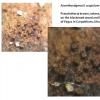
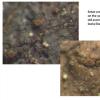
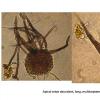
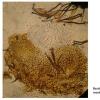
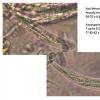
 Acanthostigma-Promputtha-Miller-Mycologia-2010-0001.pdf
Acanthostigma-Promputtha-Miller-Mycologia-2010-0001.pdf